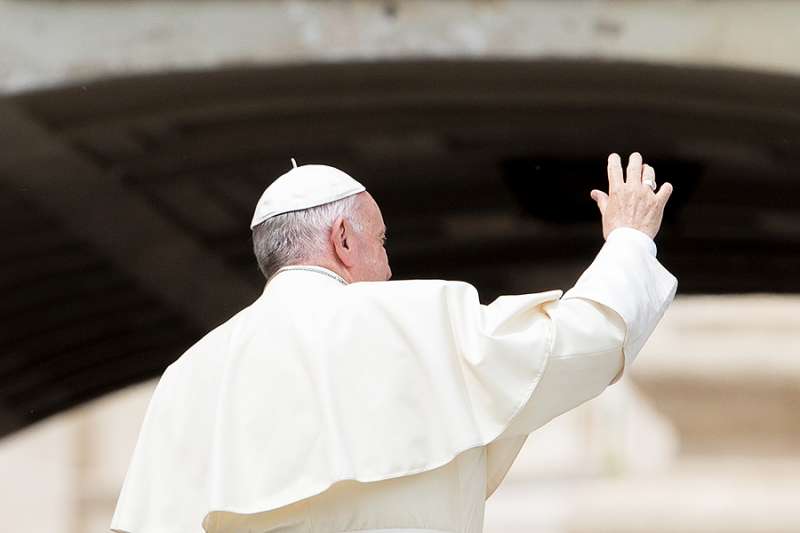Bishops across the US have welcomed the modification made to the Catechism of the Catholic Church saying the Church teaches that capital punishment is “inadmissible.”
Archbishop José Gomez of Los Angeles welcomed the changes, stating Aug. 3: “I am grateful for Pope Francis’ leadership in working for an end to judicial executions worldwide.”
He said the revisions “reflect an authentic development of the Church’s doctrine that started with St. John Paul II and has continued under emeritus Pope Benedict XVI and now Pope Francis.”
“The Scriptures, along with saints and teachers in the Church’s tradition, justify the death penalty as a fitting punishment for those who commit evil or take another person’s life,” Archbishop Gomez wrote.
“And the Church has always recognized that governments and civil authorities have the right to carry out executions in order to protect their citizens’ lives and punish those guilty of the gravest crimes against human life and the stability of the social order.”
He also noted that “in recent decades, there has been a growing consensus — among bishops’ conferences around the world and in the teachings of the Popes and the Catechism — that use of the death penalty can no longer be accepted.”
“The Church has come to understand that from a practical standpoint, governments now have the ability to protect society and punish criminals without executing violent offenders. The Church now believes that the traditional purposes of punishment — defending society, deterring criminal acts, rehabilitating criminals and penalizing them for their actions — can be better achieved by nonviolent means,” the Archbishop of Los Angeles said.
“The Catechism now says the death penalty is 'inadmissible' — it should not be used — because it violates the dignity of the person and because 'more effective systems of detention have been developed, which ensure the due protection of citizens but, at the same time, do not definitively deprive the guilty of the possibility of redemption.'”
Archbishop Gomez added that the revision “is not equating capital punishment with the evils of abortion and euthanasia. Those crimes involve the direct killing of innocent life and they are always gravely immoral. By definition, the lives of almost all those on death row are not 'innocent.'”
He said that “I do not believe that public executions serve to advance that message in our secular society.”
“Showing mercy to those who do not 'deserve' it, seeking redemption for persons who have committed evil, working for a society where every human life is considered sacred and protected — this is how we are called to follow Jesus Christ and proclaim his Gospel of life in these times and in this culture.”
Bishop Frank Dewane of Venice in Florida, chairman of the US Conference of Catholic Bishops' Committee on Domestic Justice and Human Development, said Aug. 2 that “we welcome the Holy Father’s decision to revise the Catechism and its explanation of the Church’s teaching on the death penalty. All human beings are created in the image and likeness of God, and the dignity bestowed on them by the Creator cannot be extinguished, even by grave sin, such that all persons, from conception until natural death possess inalienable dignity and value that points to their origin as sons and daughters of God.”
“The new section in the Catechism is consistent with the statements of Pope Francis’ teaching on the death penalty, including his 2015 address to the U.S. Congress, as well as the statements of his predecessors,” Bishop Dewane said.
The Venice bishop noted that “Benedict the XVI urged ‘the attention of society’s leaders to the need to make every effort to eliminate the death penalty,’ and Pope St. John Paul II observed that ‘Not even a murderer loses his personal dignity, and God himself pledges to guarantee this.””
He added that “For decades, the U.S. Conference of Catholic Bishops has called for the end of the death penalty in the United States.”
The same day, the Nebraska Catholic Conference issued a statement in the names of Archbishop George Lucas of Omaha, Bishop James Conley of Lincoln, and Bishop Joseph Hanefeldt of Grand Island, saying Pope Francis had “issued an important clarification on the Church’s teaching regarding the death penalty. The Holy Father’s declaration that the death penalty is no longer admissible under any circumstances is an answer to our prayers and welcome news, especially for those of us living in Nebraska.”
The change to the Catechism “rightly upholds the inviolability of the human person,” the bishops of Nebraska said, “whose life is worthy of protection from the moment of conception to natural death, and ought to be treated with the respect and dignity given by God Himself.”
“As the Catholic Bishops of Nebraska, we join Pope Francis in calling for the 'elimination of the death penalty where it is still in effect,' since it is not necessary to protect public safety from an unjust aggressor. In particular, as we have publicly expressed on numerous occasions over the last two decades, Nebraska is fortunate to have a competent judicial system, modern correctional facilities and decades of law enforcement advances. Simply put, the death penalty is no longer needed or morally justified in Nebraska.”

